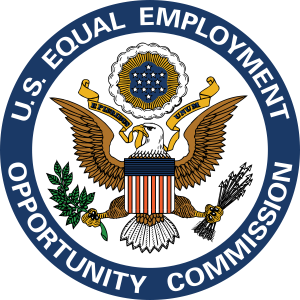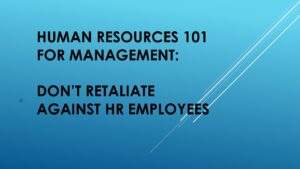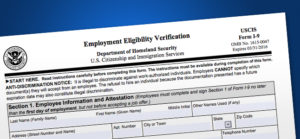 In August 2012, I wrote a blog article entitled, “Despicable Sexual Conduct Not Necessarily Sexual Harassment”, lamenting the 5th Circuit’s reversal of a male-on-male sexual harassment jury verdict. Recently, however, a decision from an en banc 5th Circuit Court of Appeals (a full 16 judge panel instead of the usual 3 judge panel) affirmed the jury’s verdict.
In August 2012, I wrote a blog article entitled, “Despicable Sexual Conduct Not Necessarily Sexual Harassment”, lamenting the 5th Circuit’s reversal of a male-on-male sexual harassment jury verdict. Recently, however, a decision from an en banc 5th Circuit Court of Appeals (a full 16 judge panel instead of the usual 3 judge panel) affirmed the jury’s verdict.
In an opinion which included numerous excerpts of trial testimony, the majority in EEOC v. Boh Brothers Construction Co. set forth circumstances where male-on-male harassment could constitute a form of sex (gender) discrimination under Title VII — even where neither the harasser nor the victim were homosexual. In the Boh Brothers case, this evidence included numerous instances of a male supervisor calling the victim, Kerry Woods, homophobic names such as “faggot”, “queer”, “pussy”, and “princess”; as well as several lewd acts such as exposing his penis, and walking up behind Woods and simulating anal sex. The court concluded that the jury had sufficient evidence to find that the harasser intended to denigrate Woods based a perception that Woods did not fit into a certain gender stereotype for males.
This decision also provides employers a reminder that simply having an anti-discrimination policy is not enough to insulate you from liability. Boh Brothers had a written anti-discrimination policy, but did little to implement it. Supervisors were not trained on how to investigate, document or resolve complaints. For instance, after receiving Woods’ complaint, the company conducted a 20 minute investigation, the investigator took no notes and asked no questions, and the company took no disciplinary action against the harasser. This is not a good way for a company to convince a jury that it is committed to preventing or correcting sexual harassment.
This is a good decision for workers. Opponents will argue that it will open the floodgates to legal claims involving immature or boorish behavior by supervisors. It won’t. It will also not create, as the dissenting justices suggest, a judicially enforced “code of civility” in the workplace. But for workers who are harassed and demeaned because of a perception that they are homosexual and/or too feminine (or masculine) for their gender, there is now a safeguard under Title VII’s umbrella of protections.
“Sex talk doesn’t always mean that sex is involved.”
Justice Edith Jones, 5th Circuit Court of Appeals. Dissenting opinion in EEOC v. Boh Brothers Construction Company





